Unmasking the Water Scam: An In-Depth Analysis of the 08000093806 Reports
In today’s digital age, scams are growing in complexity. Recently, our community reported 6 incidents and 569 lookups for the phone number 08000093806—a Freephone number with an 0800 area code in the United Kingdom. Despite its current neutral rating, multiple accounts suggest that this line is linked with a water scam that falsely claims an association with Thames Water. This article explores the scam’s modus operandi, analyzes community reports, and provides actionable advice on verifying caller authenticity and protecting personal information.
The Modern Scam Landscape
Digital fraud continues to evolve as scammers adopt increasingly sophisticated tactics. Modern scams frequently leverage trusted brands to lend credibility to their deceptive messages. The case of 0800 009 3806 is emblematic of this trend. Fraudsters exploit the public’s familiarity with UK Freephone numbers to mask their true intentions, often combining accurate personal details with urgency and pressure.
In many instances, scammers impersonate reputable organisations like Thames Water to gain the trust of their targets. By mimicking legitimate processes and using caller ID spoofing, they convince victims to share sensitive information under the guise of urgent debt recovery or service verification.
Understanding UK Freephone Numbers
UK Freephone numbers, typically beginning with 0800 or 0808, are designed to facilitate customer service without any charge to the caller. They are widely used by reputable businesses and public sector organisations. However, this accessibility can also be exploited by fraudsters.
Key points to note:
- Perceived Legitimacy: The 0800 prefix signals that the number is intended for free customer service, which can cause victims to assume the call is authentic.
- Verification Necessity: Despite the number’s format, it’s essential to verify any unsolicited call through official channels rather than relying solely on the appearance of the phone number.
Overview of 08000093806
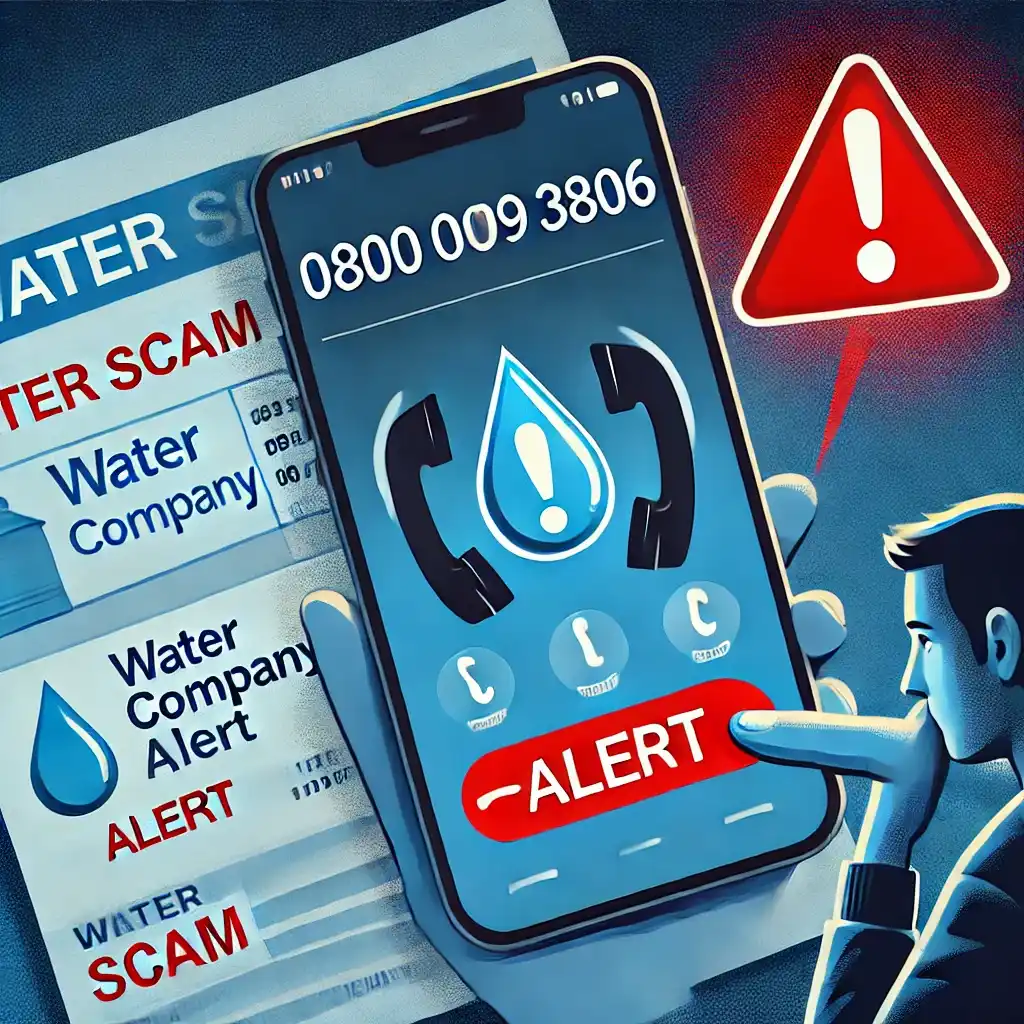
The phone number 0800 009 3806 has garnered attention due to its association with a water scam. Here’s a brief overview:
- Reports and Lookups: With 6 reported incidents and 569 lookups, community feedback reveals a mix of experiences, even though the caller rating remains neutral.
- False Association: The number is being used to impersonate Thames Water, thereby misleading the public into believing that the call is legitimate.
- Frequent Keywords: The following words have been mentioned repeatedly in reports: Water (4x), Scam (2x), Debt (1x), Payment (1x), Debit (1x), Bill (1x). These keywords highlight the scam’s focus on utility bills and debt-related fears.
Read previous blog post Understanding the 4386045244 Number
Community Reports and Key Keywords
Multiple firsthand accounts illustrate the range of tactics used by scammers. Below are summaries of the reported experiences:
- Proof of Address Request:
- Report: “I received a phone call from the number 08000093806 to send a prove of my address, and I did that.. Can someone help me with this?”
- Insight: Requesting proof of address is a classic social engineering tactic aimed at harvesting personal data.
- Sensitive Information Request:
- Report: “Received call claiming from Thames Water; she confirmed my name and address and asked for my Date of Birth which I didn’t want to give and she seemed annoyed I wouldn’t give. This may have been genuine or a scam – unsure.”
- Insight: The insistence on obtaining additional details like date of birth is a significant red flag.
- Direct Debit and Payment Verification:
- Report: “Received a call from this number. Had all my correct information down to small details. Chasing payment as my direct debit failed and I paid. Thames Water appeared on the statement with their address so can confirm it’s legit.”
- Insight: The inclusion of accurate personal details heightens the perceived legitimacy, making it harder for victims to distinguish between a genuine call and a scam.
- Debt Assistance Department Claim:
- Report: “Supposedly debt assistance dept for Thames Water. I wasn’t expecting a call from them.”
- Insight: An unexpected call from a supposed debt assistance department can trigger panic, leading to hasty decisions.
The recurring nature of these keywords and tactics reveals a pattern designed to evoke trust while creating confusion.
Dissecting Scam Techniques
Scammers employ several tactics to enhance the credibility of their calls. Below is an analysis of the key techniques:
Impersonation of Reputable Organisations
By claiming to be from Thames Water, scammers use a trusted name to lower the victim’s guard. This deception capitalises on the established reputation of the brand, making it easier for fraudsters to extract sensitive information.
Exploitation of Personal Data
Reports indicate that scammers sometimes have access to accurate personal data such as names and addresses. This not only makes the call appear legitimate but also demonstrates a higher level of sophistication in obtaining such details.
Psychological Pressure and Urgency
Scam calls often include elements of urgency. Victims are pressured to act immediately—providing information or confirming payments—to avoid supposed negative consequences, such as service disruption or debt escalation.
Dual Messaging
Some callers blend legitimate-sounding elements, such as references to direct debit issues, with fraudulent requests. This mixture of truth and deception creates confusion and lowers the recipient’s skepticism.
To illustrate, the table below summarizes these scam techniques:
| Scam Technique | Description | Objective |
|---|---|---|
| Impersonation | Fraudsters mimic established brands (e.g., Thames Water) to lend legitimacy to their calls. | To build trust and reduce suspicion. |
| Exploitation of Personal Data | Use of accurate personal information to create a convincing narrative. | To appear authentic and gain compliance. |
| Psychological Pressure and Urgency | Calls are designed to be urgent, prompting quick action without time for verification. | To prompt immediate, unthoughtful responses. |
| Dual Messaging | Incorporating elements of truth (e.g., direct debit issues) alongside false claims. | To confuse and manipulate the victim’s judgement. |
Reported Aspects at a Glance
A comprehensive summary of the reported details can help consumers and authorities understand the scam’s structure. The table below provides an at-a-glance overview of the key aspects mentioned in community reports:
| Aspect | Details | Keywords Involved |
|---|---|---|
| Caller Identity | Claims to be from Thames Water; varies from ambiguous to highly detailed in personal data | Water, Scam |
| Nature of Request | Requests for proof of address, personal details, or confirmation of direct debit issues | Debt, Payment, Debit, Bill |
| Caller Behaviour | In some reports, the caller’s tone is agitated or hurried when details are withheld | Scam, Debt |
| Level of Personal Data Usage | High – includes name, address, and sometimes additional sensitive details | Water, Payment, Bill |
| Call Outcome | Mixed – some victims provided information, while others questioned the legitimacy | Scam, Debt |
| Consumer Uncertainty | Reports indicate confusion and hesitation regarding the authenticity of the call | Scam, Water |
Caller Authenticity Checklist
To safeguard yourself against fraudulent calls, consider using a checklist that summarises key steps for verifying a caller’s authenticity. The table below outlines practical actions you can take:
| Verification Step | Action | Why It’s Important |
|---|---|---|
| Cross-Reference Contact Info | Verify the phone number and contact details against those listed on the official website. | Ensures you’re communicating with a legitimate source. |
| Avoid Immediate Data Sharing | Do not provide sensitive information (e.g., date of birth, bank details) during unsolicited calls. | Protects against identity theft and fraud. |
| Request a Callback | Ask the caller to contact you via the official customer service number provided on the organisation’s website. | Offers a chance to verify legitimacy independently. |
| Use Reverse Lookup Services | Utilize reputable reverse lookup tools to check the history and ratings of the phone number. | Provides additional context and community feedback. |
| Monitor Caller Tone | Pay attention to any signs of aggression, urgency, or incoherence in the call. | Genuine representatives maintain a calm and professional tone. |
This checklist can be printed or saved on your device as a quick reference guide when receiving unexpected calls.
Consumer Protection and Advice
If you suspect that you’ve been targeted by the 08000093806 scam, here are actionable steps to protect yourself:
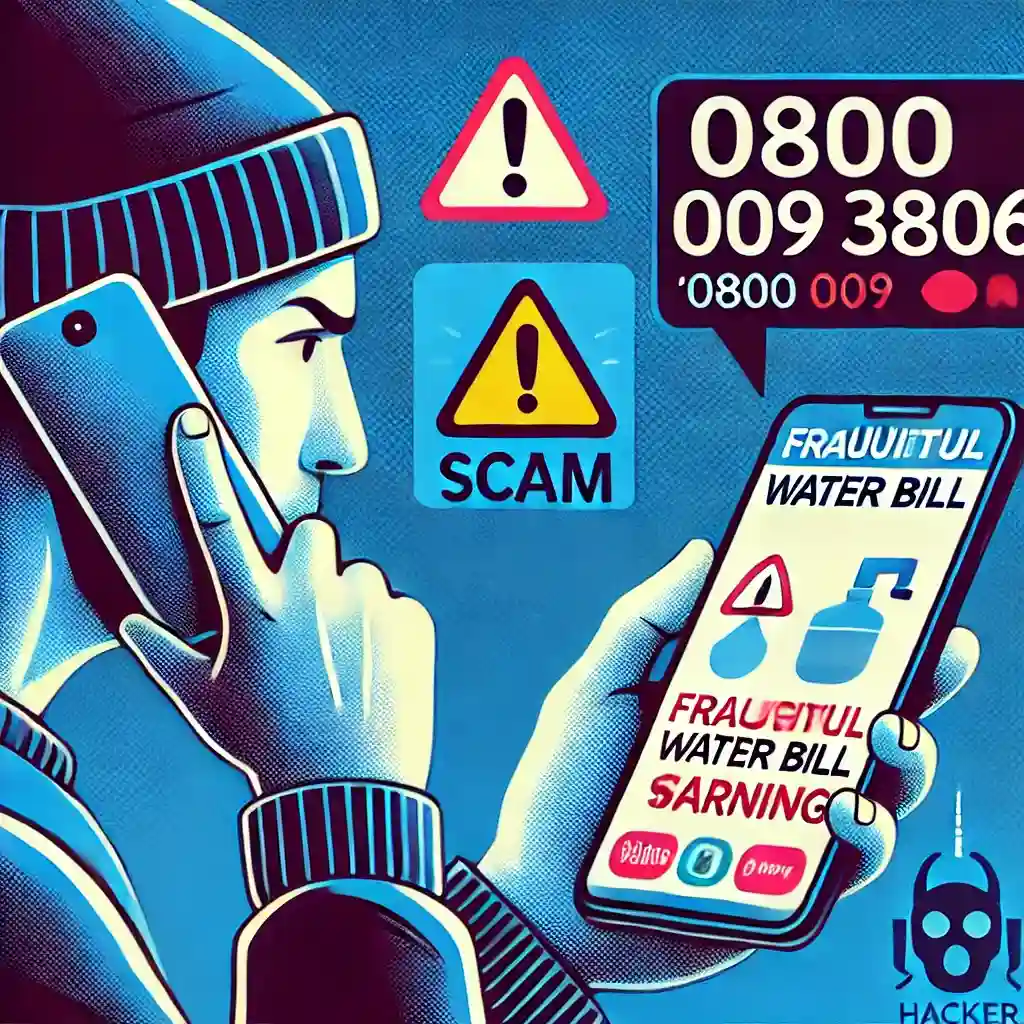
Do Not Rush Into Action
- Take a Pause: Resist the pressure to immediately provide personal information. Scammers use urgency to prevent you from thinking through your responses.
- Verify Independently: Contact the official Thames Water customer service or check their website to confirm if the call was legitimate.
Report Suspicious Calls
- Notify Authorities: Report the scam to UK agencies such as Action Fraud or your local Trading Standards office. This helps build a record that can aid in future investigations.
- Community Feedback: Share your experience on reputable review platforms and community forums to warn others.
Monitor Financial Statements
- Review Transactions: After any suspicious interaction, keep a close eye on your bank statements for unauthorized transactions.
- Set Up Alerts: Many banks offer real-time notifications for transactions, helping you catch fraudulent activity early.
Utilize Call-Blocking Tools
- Security Apps: Consider using mobile security apps that block scam calls. Regularly update these apps to adapt to evolving scam tactics.
- Caller ID Services: Subscribe to services that provide detailed caller information and community ratings.
Stay Informed
- Education: Regularly review updates from consumer protection organisations to stay ahead of emerging scam techniques.
- Workshops and Webinars: Participate in local or online events focused on digital security to further understand how scams operate.
Legal and Regulatory Perspectives
The misuse of a Freephone number and the unauthorized use of trusted brands like Thames Water raise significant legal concerns. UK regulatory bodies are actively working to combat these practices.
Regulatory Oversight and Enforcement
| Agency | Role |
|---|---|
| Ofcom | Regulates telecommunications and ensures compliance with caller ID and communication standards. |
| Information Commissioner’s Office (ICO) | Oversees data protection and privacy issues, addressing breaches related to personal data misuse. |
| Action Fraud | Investigates and takes action against scams, collecting reports and advising consumers on next steps. |
These agencies collaborate to track fraudulent activity, enforce regulations, and, when necessary, take legal action against perpetrators.
Consumer Legal Recourse
Victims of scams may be entitled to legal support:
- Consult Legal Professionals: If you suffer financial loss, seek advice from a legal expert specialising in consumer fraud.
- Data Recovery and Compensation: In some cases, victims might be eligible for compensation or data recovery support, particularly if the scam leads to identity theft.
Future Outlook on Scam Trends
The tactics employed in the 08000093806 case offer insight into broader trends in digital fraud:
Technological Advancements
- Enhanced Caller Spoofing: Scammers are using artificial intelligence to create highly realistic spoofed numbers and voices.
- Data Analytics: With access to advanced data mining tools, fraudsters can tailor their scams to include accurate personal details, increasing the call’s credibility.
Evolving Social Engineering Tactics
- Psychological Manipulation: Scammers refine their techniques to exploit human emotions such as fear, urgency, and trust.
- Mixed Messaging: Blending authentic information with fraudulent requests makes it more difficult for recipients to discern legitimacy.
Collaborative Consumer Defences
- Community Reporting: Online forums and review platforms play a critical role in alerting others to emerging scams.
- Enhanced Security Measures: Both consumers and financial institutions are increasingly utilising technology to block and trace scam calls.
Legislative and Regulatory Reforms
- Stricter Controls: Future regulations may tighten controls on caller ID technologies and the use of Freephone numbers.
- International Cooperation: As scams cross borders, enhanced international collaboration is expected to improve fraud detection and enforcement.
Read also Understanding the Buzz Who Called 03333381014
Conclusion
The saga of the phone number 08000093806 illustrates the persistent challenges posed by modern scams. By exploiting trusted brands such as Thames Water, and employing a mix of accurate personal data with high-pressure tactics, fraudsters have created a sophisticated narrative that confuses even vigilant consumers.
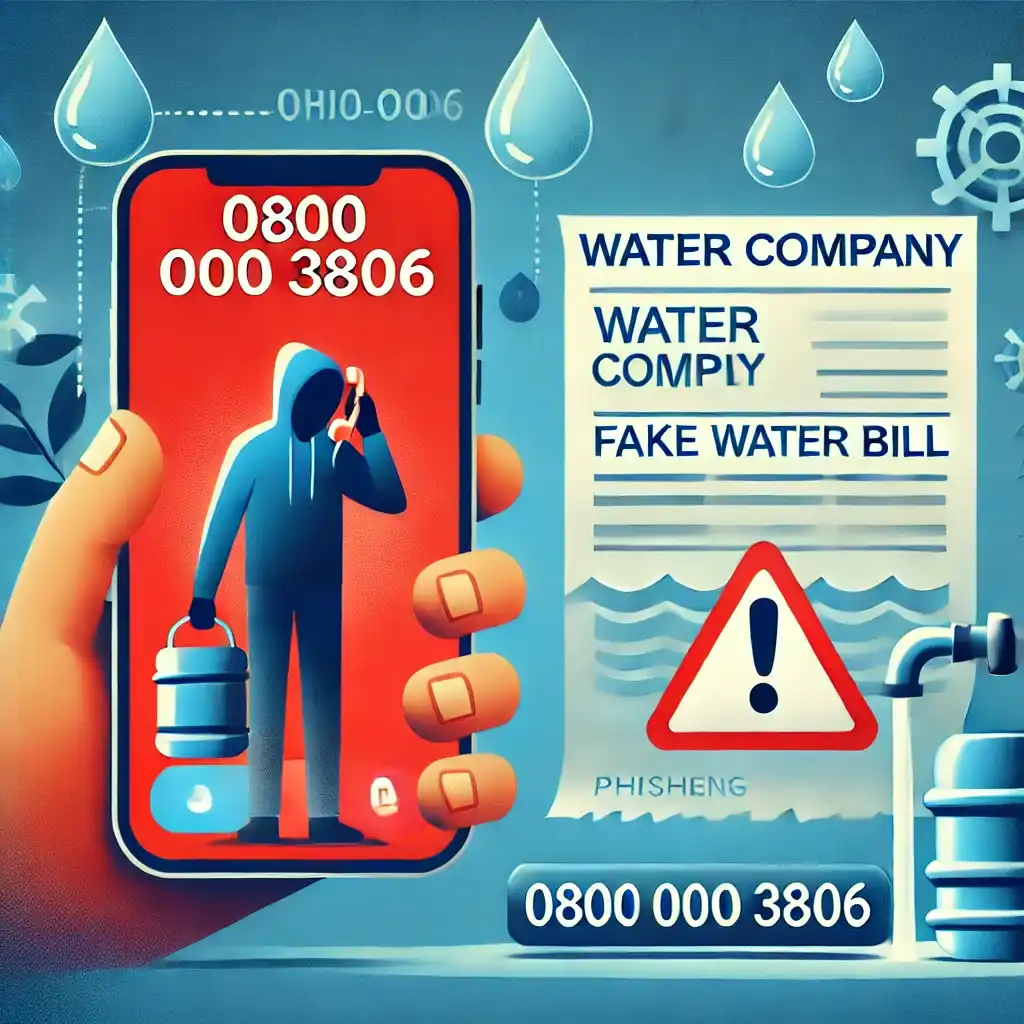
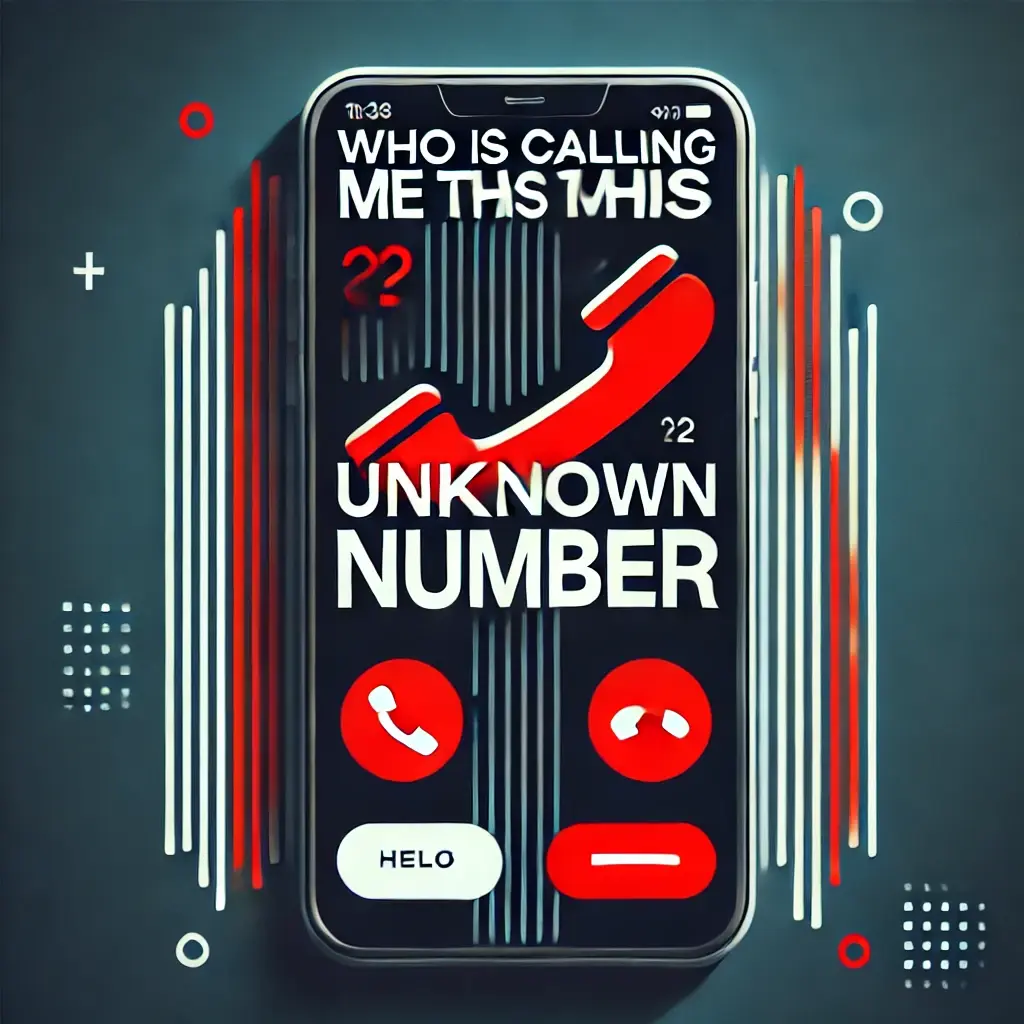

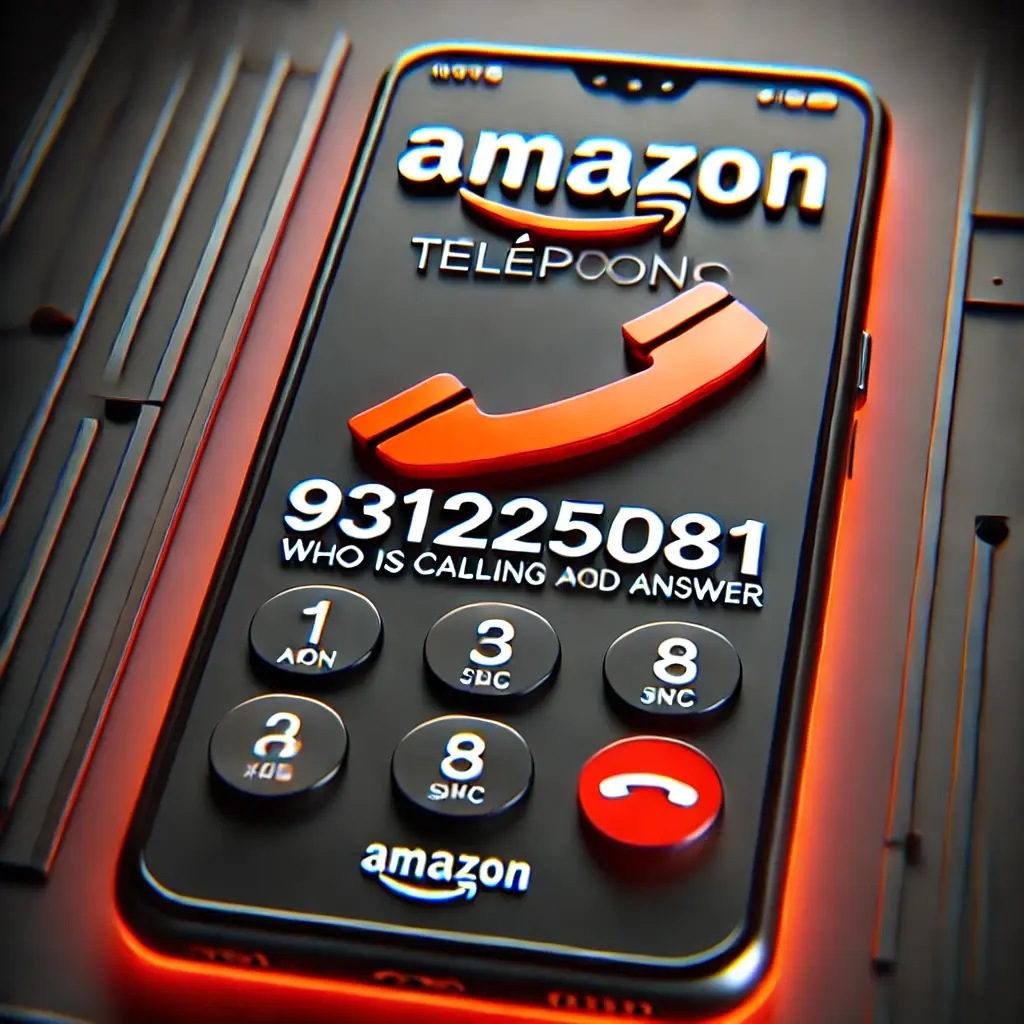
Post Comment